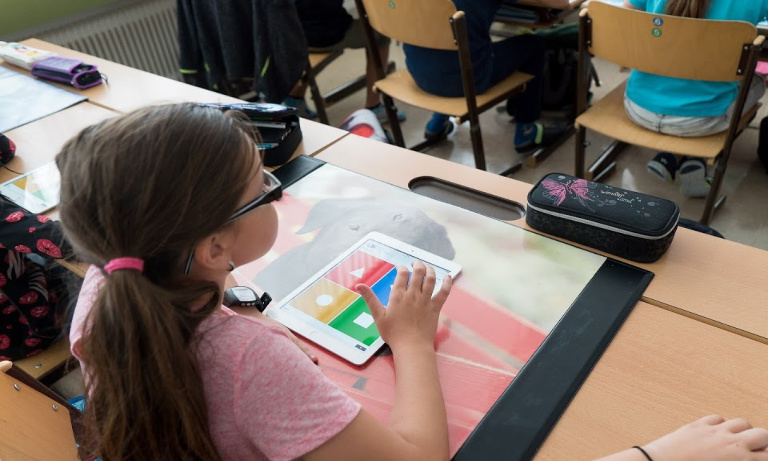 Teachers believe the education system should be used to prepare children for the digital workplaces they will be working in in the future
Teachers believe the education system should be used to prepare children for the digital workplaces they will be working in in the futureRecent research by the National Literacy Trust, funded by Crick Software, has discovered that 88% of teachers surveyed believe that education and schooling should help to get young people ready for working in a digital world, but many are also concerned about the lack of investment in technology in schools.
Jonathan Douglas, director of the National Literacy Trust, said: “Technology is ever present in children and young people’s daily lives – and it’s here to stay. Teachers believe that technology has the potential to transform pupils’ literacy and learning, yet limited access to hardware, software, Wi-Fi and training presents significant challenges to teachers seeking to use technology in the most effective way for their pupils.”
Various factors need to be taken into consideration when adopting technology in schools, such as not knowing what to invest in and a lack of funding.
According to the National Literacy Trust’s research, under half of pupils have access to technology such as laptops or iPads in schools, only 39.3% had access to a desktop computer at school, and some technologies such as virtual reality headsets, smart speakers and wireless headphones are accessible to less than 3% of students in some cases.
Primary schools were found to have better technology over secondary schools such as laptops and Wi-Fi. Primary school teachers were also more likely to have received training on how to use technology to support literacy learning than secondary school teachers.
As well as a lack of confidence in teaching subjects such as computing, teachers often struggle to use technology available in the classroom. In fact, 23.3% of teachers said they’d never received any training on how to use technology to support the teaching of literacy to students.
The lack of technology was found to not be supporting learning for some students, according to teachers – 87% of teachers surveyed said technology can be used to engage students when learning reading, writing, speaking and listening.
For those who struggle with reading and writing, over 60% of teachers claimed technology can help make it easier for them to learn, with tech helping teachers to provide more personalised learning and support to pupils, as well as make learning more inclusive for those who may struggle with certain concepts.
Teachers also said technology to support the teaching of literacy should be available across the curriculum.
The government has invested £10m in an education technology strategy which encourages technology companies to help schools select and adopt technology, hoping to get things rolling and encourage technology learning at a far younger age.





